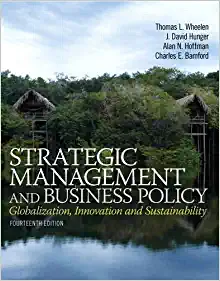Answered step by step
Verified Expert Solution
Question
1 Approved Answer
Economics 101 by Walter E. Williams Economic ignorance allows us to fall easy prey to political charlatans and demagogues, so how about a little Economics
Economics 101 by Walter E. Williams Economic ignorance allows us to fall easy prey to political charlatans and demagogues, so how about a little Economics 101. How many times have we heard "free tuition", "free healthcare", and free you-name-it? If a particular good or service is truly free, we can have as much of it that we want without the sacrifice of other goods or services. Take a "free" library; is it really free? The answer is no. Had the library not been built, that $50 million could have purchased something else. That something else sacrificed is the cost of the library. While users of the library might pay a zero price, zero price and free are not one and the same. So when politicians talk about providing something free, ask them to identify the beneficent Santa Claus or Tooth Fairy. It's popular to condemn greed but it's greed that gets wonderful things done. When I say greed, I don't mean stealing, fraud, misrepresentation, and other forms of dishonesty. I mean people trying to get as much as they can for themselves. We don't give second thought to the many wonderful things that others do for us. Detroit assembly line workers get up at the crack of dawn to produce the car that you enjoy. Farm workers toil in the blazing sun gathering grapes for our wine. Snowplow drivers brave blizzards just so we can have access to our roads. Do you think these people make these personal sacrifices because they care about us? My bet is that they don't give a hoot. Instead, they along with their bosses do these wonderful things for us because they want more for themselves. People in the education and political establishments pretend they're not motivated by such "callous" motives as greed and profits. These people "care" about us but which areas of our lives do we derive the greatest pleasures and have the fewest complaints, and which areas do we have the greatest headaches and complaints? We tend to have a high satisfaction level with goods and services like computers, cell phones, movies, clothing and supermarkets. These are areas were the motivation is greed and profits. Our greatest dissatisfaction are in areas of caring and no profit motive such as public education, postal services, and politics. Give me greed and profits and you can keep the caring. How about the idea that if it saves just one life it's worth it? That's some of the stated justification for government mandates for child-proof medicine bottles, gun locks, bike helmets and all sorts of warning labels. No doubt there's a benefit to these government mandates but if we only look at benefits we'll do darn near anything because there's always a benefit to any action. For example, why not have a congressionally mandated five mph highway speed limit? According to the U.S. Department of Transportation, there were 43,220 highway fatalities in 2003 with an estimated cost of $230 billion. A five mph speed limit would have spared our nation of this loss of life and billions of dollars. You say, "Williams, that's preposterous!" You're right. Most people would agree that a five mph speed limit is stupid, impractical and insane. That's one way of putting it but what they really mean is: the benefit of saving 43,200 highway deaths and the $230 billion that would result from mandating a five mph speed limit isn't worth all the inconvenience, delays and misery. Admittedly, the five mph speed limit is an extreme example, a reductio ad absurdum. Nonetheless, it illustrates the principle that our actions shouldn't be guided by benefits only; we should also ask about costs. Again when politicians come to us pretending they're Santa Clauses or Tooth Fairies delivering benefits only, we should ask what's the cost and who's going to pay and why. Walter Williams is a professor of Economics at George Mason University. 1) summarizes the content of the editorial 2) describes the editorial's relevance to one or more of the lecture(s) given in this course, the video episodes used in this course, or material from the text book used for this course 3) explains why you agree or disagree with the opinion of the author (You must either agree or disagree. Being non-committal is not an acceptable answer.)
Step by Step Solution
There are 3 Steps involved in it
Step: 1

Get Instant Access to Expert-Tailored Solutions
See step-by-step solutions with expert insights and AI powered tools for academic success
Step: 2

Step: 3

Ace Your Homework with AI
Get the answers you need in no time with our AI-driven, step-by-step assistance
Get Started


